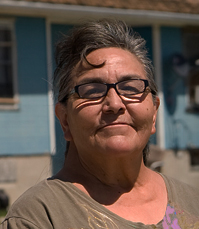|
|

 |
Along with Dull Knife, Little Wolf was a war leader of the Northern Cheyenne. He gained his reputation for military prowess during his battles against the Commanche and Kiowa. By 1851 Little Wolf had ceased warring against the invading whites in exchange for an Indian agency and annuities. Although the agency was never established and annuities came rarely Little Wolf continued to counsel peace with the one notable exception of participating in a retaliatory raid on Army troops to avenge the massacre of Black Kettle’s Cheyenne at Sand Creek in 1865.
In 1868 Little Wolf signed the Fort Laramie Treaty that required the United States to vacate forts along the Bozeman Trail. Although Little Wolf’s followers were not among the Cheyenne with Crazy Horse at Little Bighorn, they were caught up in the retaliatory attacks by U.S. troops. Little Wolf’s warriors came to the aid of Dull Knife when the U.S. Army destroyed his village. Little Wolf was shot seven times, but survived.
In the winter of 1876-77 the starving Cheyenne bands surrendered to General Nelson Miles and were promised a reservation in their native lands. Not surprisingly, once the surrender had been concluded, Miles did not keep his promise and the Cheyenne, led by Little Wolf and Dull Knife, were sent to a reservation in Indian Territory (Oklahoma).
By the summer of 1878 half of the Cheyenne were dead in Oklahoma and Little Wolf and Dull Knife pleaded to be allowed to return to their homeland. Indian Agent John Miles refused. When ten young Cheyenne left the reservation Miles demanded hostages until troops could round up the runaways threatening that rations would be withheld until the Cheyenne chiefs complied. In a famous quote Little Wolf replied, “Last night I saw children eating grass because they had no food. Will you take the grass from them?”
The Cheyenne fled the reservation while repelling repeated attacks by U.S. troops. In Nebraska, Little Wolf and Dull Knife split up. Dull Knife rode to Red Cloud Agency to surrender. Little Wolf and his band headed to the Nebraska Sand Hills to hide. In March of 1879 Little Wolf finally surrendered to General Nelson Miles at Fort Keough. Little Wolf’s band of Cheyenne were allowed to stay on the Northern Plains near their home this time.
In 1880, Little Wolf killed another Cheyenne and lost his standing as a chief. He became a scout for the army and spent the rest of his years on the reservation until his death in 1904. |
|
|















